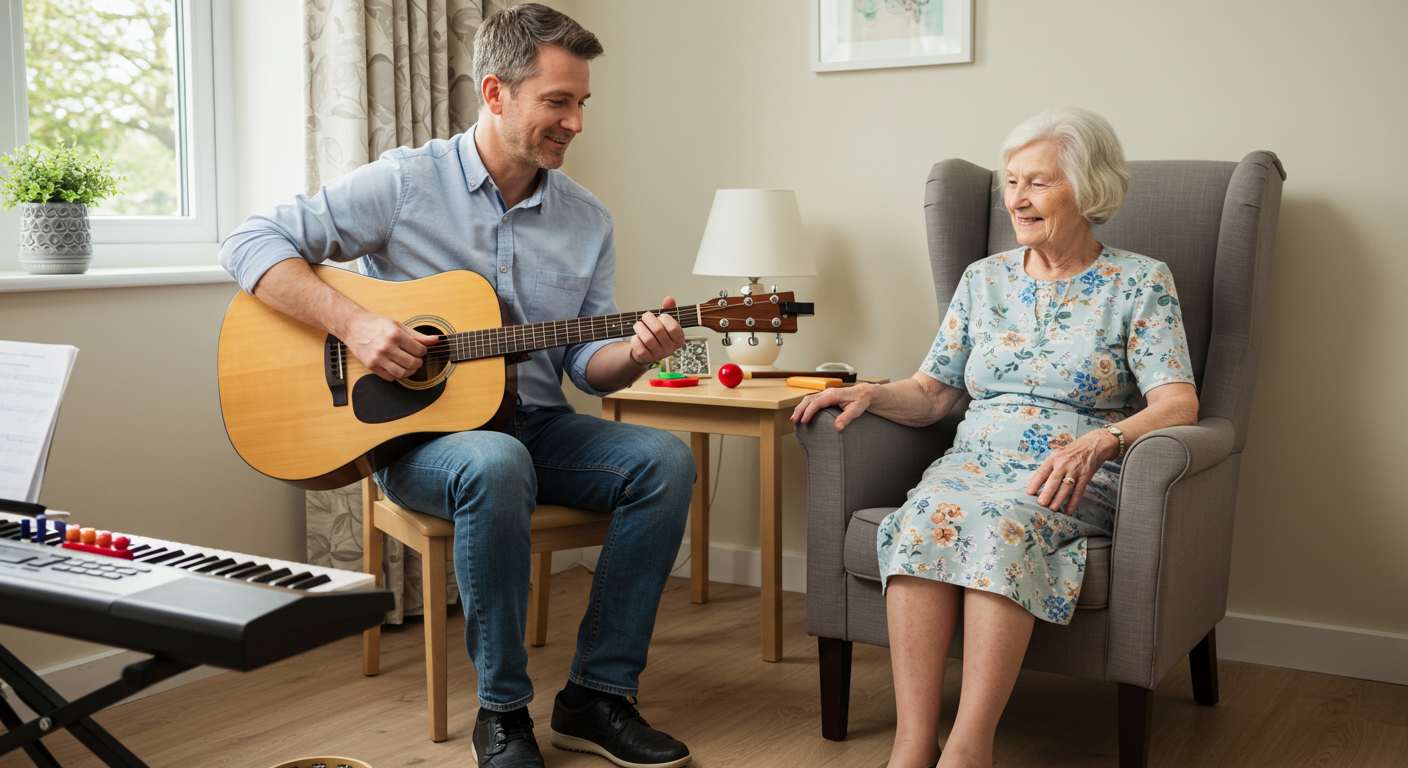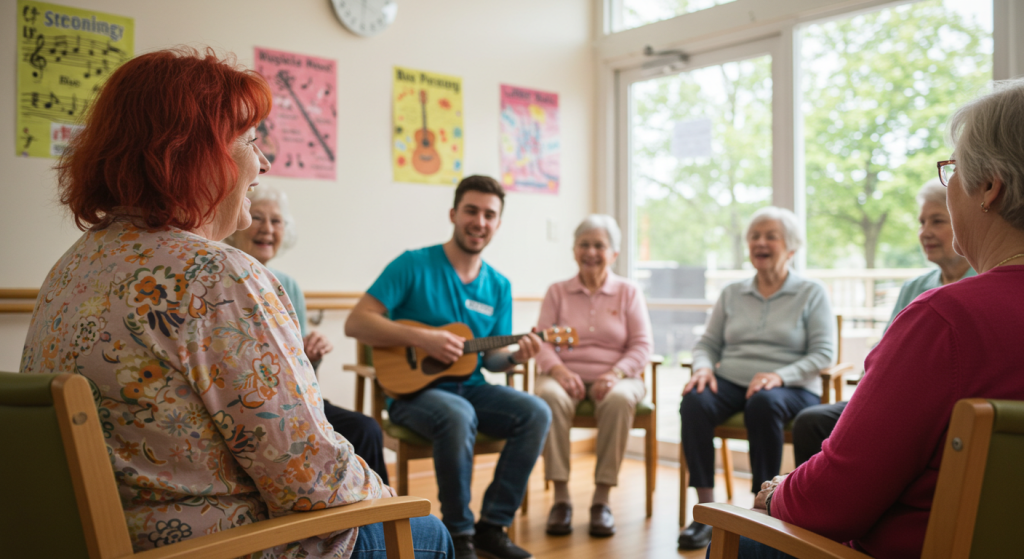
As the global population ages, addressing cognitive decline in older adults becomes increasingly crucial. One innovative approach to combat memory loss is music therapy, which leverages the powerful connection between music and human emotion. Research suggests that music therapy can stimulate neural pathways associated with memory, helping seniors evoke cherished memories and enhance their cognitive functioning. By integrating therapeutic music intervention into the lives of older adults, we can not only foster emotional well-being but also promote a more active, fulfilling lifestyle through improved memory retention.
Understanding Music Therapy
Music therapy is a varied and dynamic form of therapy where music is utilized to address physical, emotional, and cognitive needs. It leverages the power of rhythms, melodies, and harmonies to improve health outcomes among seniors. This artful approach not only helps individuals manage their emotions but also creates opportunities for social connection.
Active vs. Receptive Music Therapy
Within the realm of music therapy, there are two primary approaches:
- Active Music Therapy: Involves engaging directly with music by playing instruments, singing, or moving to rhythms.
- Receptive Music Therapy: Focuses on listening to music, often curated to match the participants’ memories and interests.
Both methods can be tailored to the preferences and abilities of the participants to create enriching experiences that foster connection and creativity.
Benefits of Music Therapy for Memory Enhancement
Research supports numerous benefits of music therapy, particularly concerning cognitive function and memory enhancement in older adults. Let’s delve into some of these advantages.
Memory Recall and Emotional Connection
Memory is typically closely tied to emotions. According to studies, listening to familiar songs can elicit vivid memories from the past, especially for individuals suffering from Alzheimer’s or dementia. Music can act as a trigger, allowing seniors to recall significant life events and share their experiences with caregivers and family members.
Reduction of Depression and Anxiety
In addition to fostering memories, music therapy has been shown to help alleviate feelings of loneliness and depression that often accompany cognitive decline. Engaging in music—whether by listening or participating actively—profoundly influences mood. A positive emotional state greatly contributes to enhancing memory function, as individuals are more likely to retain information when they feel good.
Enhanced Cognitive Functioning
Studies indicate that music therapy has a measurable effect on enhancing cognitive skills like attention, reasoning, and problem-solving. Engaging with music not only stimulates the brain, but also aids in the formation of new neural connections, which may slow the cognitive decline associated with aging.
How Music Therapy Supports Dementia Patients
Seniors experiencing memory loss often struggle with communication. However, music serves as a unique bridge, allowing these individuals to express themselves. Below are ways music therapy specifically supports those living with dementia:
- Connection through Shared Memories: Music has the ability to evoke shared cultural experiences, sparking interaction and communication among individuals with similar backgrounds.
- Non-verbal Communication: For those who may not express themselves verbally, music can provide an outlet to convey emotions and thoughts, fostering understanding and connection.
- Routine and Structure: Drum circles or group singing can provide a structured environment, allowing seniors with dementia to engage in a routine that boosts confidence and comfort.
Addressing Common Questions About Music Therapy
Many people are curious about how music therapy works—this section answers some of the most frequently asked questions.
What Types of Music Are Used in Therapy?
Music therapy often involves a diverse array of genres, tailored to the interests and cultural backgrounds of participants. From classical to folk, familiar tunes, and popular melodies, the choices are plentiful.
Where Can You Find Music Therapy Services?
Many senior living facilities incorporate music therapy into their wellness programs. If you’re exploring options for your loved ones, it’s an excellent idea to visit your local community centers or inquire about specialized services in adult day care settings.
Fun Facts About Music Therapy for Seniors
- Music therapy can improve fine motor skills and cognitive abilities.
- The intersection of music and emotional memory makes it easier for seniors to access personal history.
- Music therapy can help reduce agitation and increase relaxation in dementia patients.
- Caregivers using music therapy can effectively enhance emotional communication.
Exploring More Benefits of Music Therapy
As you ponder music therapy, remember its multifaceted legacy. This form of therapy encompasses everything from reducing stress to stimulating the immune system. It can also help regulate mood and facilitate social interaction.
For those interested in discovering more benefits of music, you may find additional insights at this resource.
Music therapy is more than just a pleasant pastime. It enriches the lives of older adults by enhancing memory, improving cognitive functions, and fostering emotional well-being. Embracing music therapy can transform how seniors express themselves and connect with others.
Explore how you can encourage music therapy in your community by reaching out to BLUE STAR ADULT DAYCARE CENTER INC, who offers tailored programs to meet the needs of your senior loved ones.

